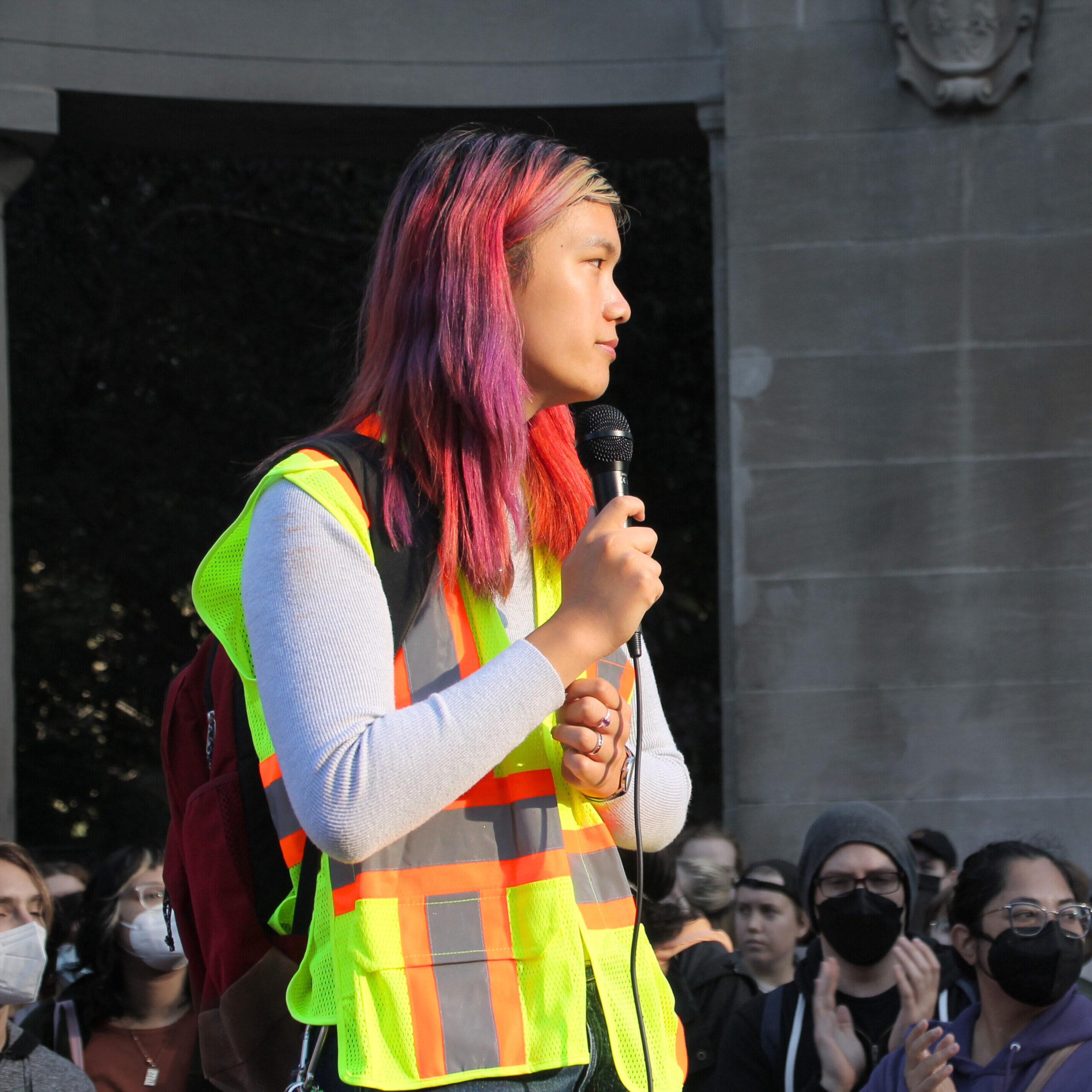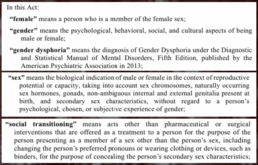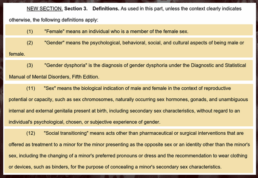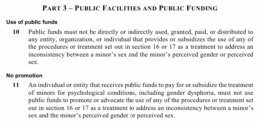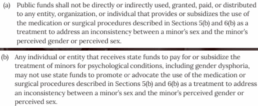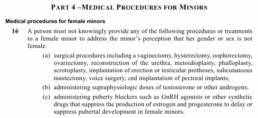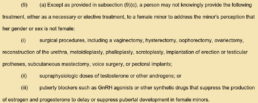On October 8, 2025, B.C.’s new far-right party, OneBC, introduced its first piece of anti-trans legislation: Bill M-216, the “Protecting Minors from Gender Transition Act”.
The bill was voted down by BC NDP and Green MLAs at first reading, not even allowing the draft bill to become a bill per se at the B.C. Legislature.
Yet, many of the proposals in Bill M-216 are unprecedented in the Canadian context. It’s even worse than Danielle Smith’s proposals to ban trans-specific healthcare. for trans youth. Some of the proposals, such as GAC bans above age 18, unlimited liability for doctors and total bans on the use of chosen pronouns and names at school, have never been seen before in Canada. But why?
Because Bill M-216 is not Canadian.
It is actually an adaptation of U.S. anti-trans group “Do No Harm”’s model legislation, “The JUST FACTs Act”, which was also used in numerous anti-trans bills across the United States since 2023. Traces of Bill M-216 can be seen a bit everywhere in U.S. legislation: with Montana Senate Bill 99 (2023), with New Mexico Senate Bill 500 (2025), and with Kansas Senate Bill 63 (2025), amongst others.
It is, in essence, American anti-trans legislation, repackaged for Canada, complete with the notwithstanding clause — the same means by which Alberta’s UCP is currently attempting to commit genocide against trans youth.
Let me show you a few examples…
What would have Bill M-216 done? Well.. for short, it would devastate the lives of trans youth. It’d prevent them from accessing the healthcare they need to survive. Unlike Alberta’s similar anti-trans legislation, it’d extend all the way to youth aged under 19, making it Canada’s strictest such law. This prohibition would not apply only to surgeries (which is what the far-right loves screaming about so much), but also hormone therapy and puberty blockers, both understood to be part of the gold standard of trans healthcare. It would also enforce forced outing of trans youth in schools, and prohibit them from using gender pronouns that align with who they are — even with parental consent, another Canadian first.
It also introduces some unprecedented provisions in Canadian law. First, it implements a prohibition on “use of public funds” for allowing trans youth to transition, excludes Medical Services Plan (MSP) public health insurance coverage for trans youth’s transitions, and prevents the tax deductability of medical expenses relating to transition. It forbids the mere encouragement of social transition — the fact of going by another name, other pronouns, etc. in day-to-day life. It also forbids doctors’ professional liability from insuring their practice if they decide to give trans youth the healthcare they need — and puts a burden of unlimited liability on them, making it possible for them to be sued 25 years down the line, even if their (former) trans youth patient had consented to the healthcare in question. For reference, the statute of limitations in B.C. for typical court cases is 2 years after discovery.
Finally, it incorporates the notwithstanding clause — a first for legislation in B.C. — effectively immunizing said bill from judicial review, not just from the obvious violations of equality rights at stake, but the right to life, liberty and security of the person of trans youth, as well as their right to live without facing cruel and unusual treatment.
How is this even conscionable?
I’m not posting this article on my website as a means of stoking fear. Trans people, as is, already are facing genocidal conditions worldwide, including in the United States. Attacks on trans people have become a centrepiece of fascism worldwide. Yet, here we are. Where genocidal legislation can be introduced in provincial parliaments a bit all across Canada, without consequence.
The democratic process is supposed to be the consequence of the notwithstanding clause. Said clause was drafted with the assumption that Canadians will care about their human rights and the ones of their neighbours, and will vote out those who choose to throw them out. We’ve seen this logic fail, first in Québec, then in Saskatchewan. Will we allow this logic to continue to fail, until the Canadian Charter of Rights and Freedoms ends up merely as valuable as a piece of toilet paper? It’s our decision to make.
End note: Since bills struck at first reading do not appear on the B.C. Legislature’s website, I have taken the liberty to upload a copy of Bill M-216 onto the Internet Archive. You may find a copy there!
